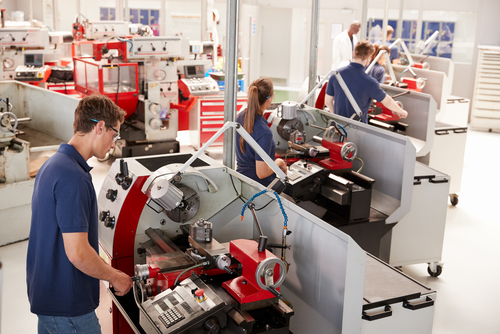What are Microfactories?
Microfactories are small-to-medium scale, technologically advanced, and usually highly automated manufacturing plants or factories. A microfactory can have a wide range of process capabilities or focus on just a single capability, depending on the end product being manufactured. Though microfactories can be scaled to replicate whatever manufacturing setup or numbers are needed, a microfactory requires less energy, less material, and a smaller labour force due to the presence of automated processes. It also reduces supply chain costs and enables on-demand production for localised focus.
The benefits of microfactories
Can support mass customisation
Should there be a local consumer in need for mass customisation/personalisation of a specific product, this request can be easily handled by a microfactory. This is usually a low-volume manufacturing capability that is on-demand due to seasonal need or buying.
Increased productivity
Microfactories require only a small force of skilled workers to function, easily lowering labour costs. This small labour force can quickly adapt or try out new methods for productivity, given their high skill levels.
Lower costs
With their size, microfactories require less floor space. Energy and raw material consumption are less, creating reduced emissions and waste.
Increased innovation
A microfactory is highly automated and versatile which can boost lean manufacturing and rate of innovation. Tests and experimentation can be performed on a small scale without impacting on cost and time.
Suggestive steps to starting a microfactory
If you want to start-up a small scale microfactory, or shift your manufacturing footprint into smaller footprint operations, here are a few suggestions:
- Equipment purchase
Purchasing equipment requires capital, so you may need to spend from your own pocket or seek capital investors or a parent company. You can buy some main equipment and add more as revenue grows. ONJ Services specialise in the design and sourcing of quality manufacturing equipment to meet your demands.
- Repetitive tasks must be automated
Automation means investing and putting processes into place, and this includes both factory and administrative tasks. You need to set up step-by-step assembly instructions in detail. Also, investing in employee training will save time and money and prevent wrong product output.
- Hire and train a technically capable staff
As mentioned earlier, invest in employee training and education because they are the backbone of your automated processes. When hiring, experience in manufacturing is a must.
Are you interested in small footprint operations?
ONJ Services are an experienced team of industrial electricians and mechanical engineers. Through our range of services, including design, installing, and ongoing maintenance, we focus on reducing costs and improving operations by optimising your manufacturing footprint. Any sudden breakdowns or even minor maintenance in your microfactories will mean lost time and productivity. You need fast response for any repairs, maintenance, installation, and even parts replacement. But don’t take our word for it. Call us on 1300 000 ONJ. We’re ready to listen to your needs.


